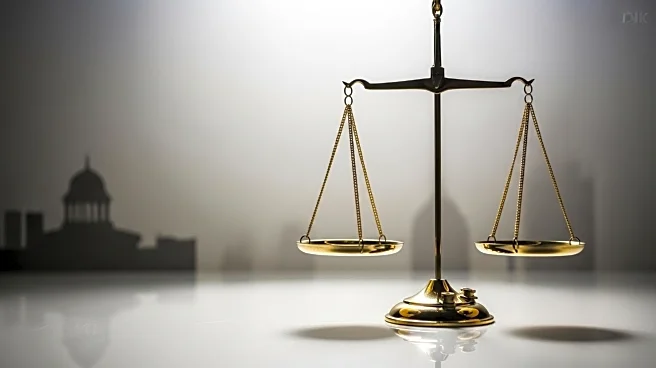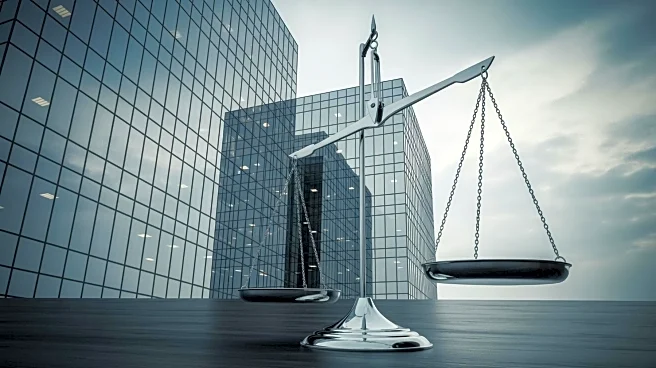What is the story about?
What's Happening?
The Supreme Court has overturned a federal judge's order that restricted federal agents in Los Angeles from stopping individuals based on certain factors related to their immigration status. This decision allows the Trump administration to continue its immigration enforcement efforts, which critics argue involve unconstitutional racial profiling. The ruling permits agents to stop and question individuals based on factors such as race, language, and location, which a lower court had previously deemed unconstitutional. The case is part of ongoing litigation related to the administration's broader immigration crackdown.
Why It's Important?
This ruling has significant implications for immigration enforcement and civil liberties in the United States. By allowing federal agents to use factors like race and language in their stops, the decision raises concerns about racial profiling and discrimination, particularly affecting Latino communities. The ruling underscores the contentious nature of immigration policy under the Trump administration and highlights the ongoing legal battles over the balance between national security and individual rights. The decision may embolden further aggressive immigration enforcement tactics, impacting immigrant communities and potentially leading to increased tensions and legal challenges.
What's Next?
The case is still pending before a federal appeals court, and the Supreme Court's decision is not the final word. As the litigation continues, there may be further legal challenges and public debate over the constitutionality of the administration's immigration policies. The ruling could prompt reactions from civil rights organizations, immigrant advocacy groups, and political leaders, potentially influencing future policy decisions and legislative actions related to immigration enforcement.
Beyond the Headlines
The decision highlights broader ethical and legal questions about the use of racial profiling in law enforcement. It raises concerns about the potential erosion of civil liberties and the impact of such policies on community trust in law enforcement. The ruling may also influence public perceptions of the judiciary's role in checking executive power and protecting individual rights.

















